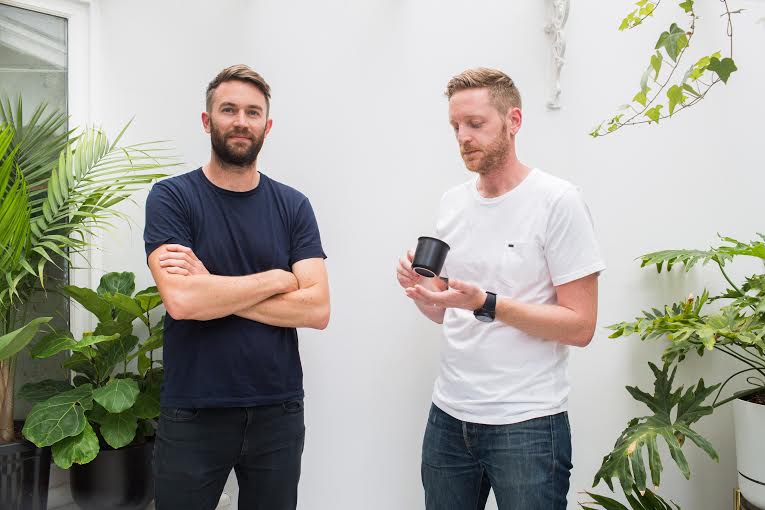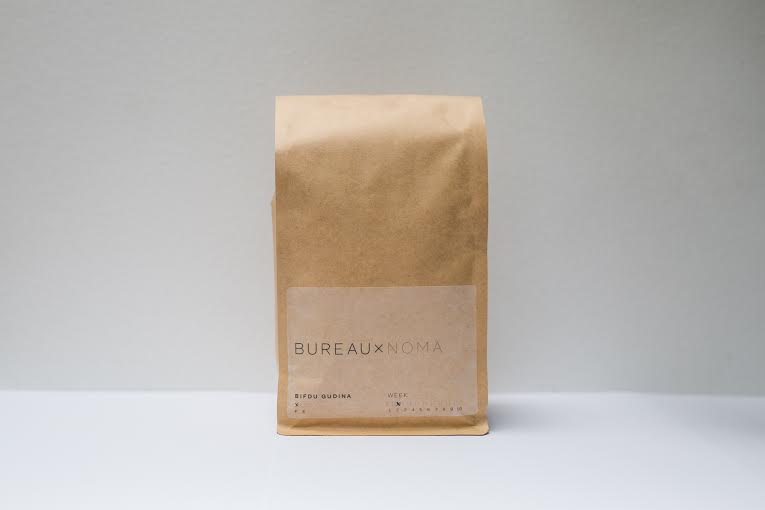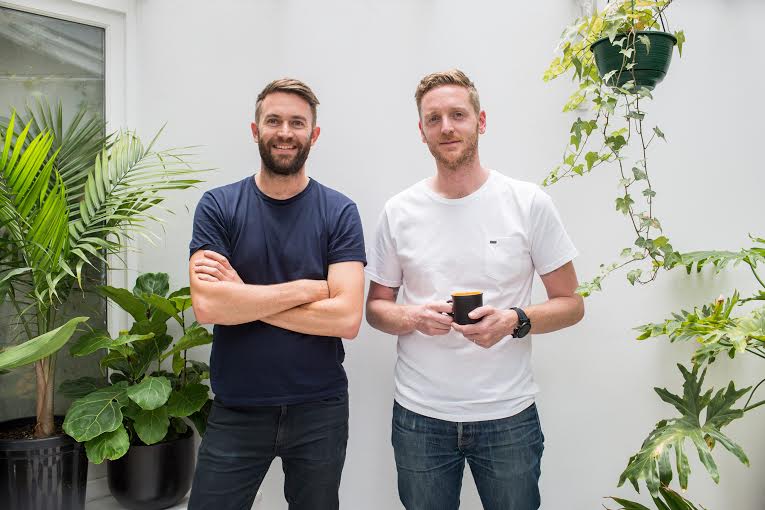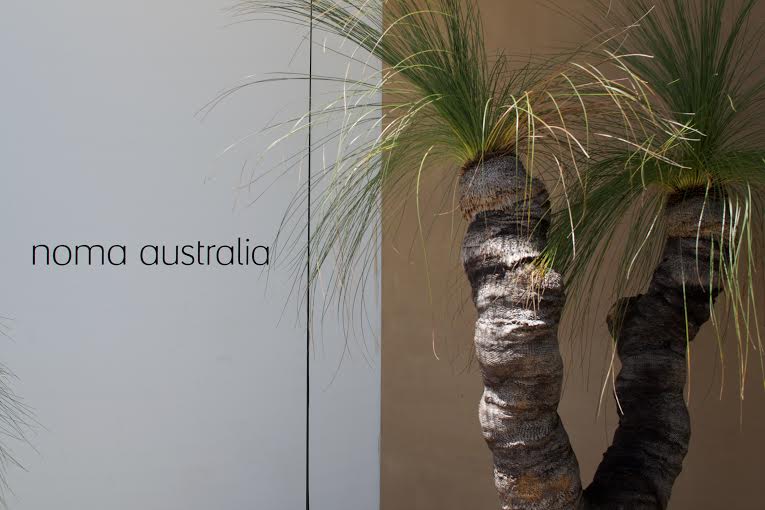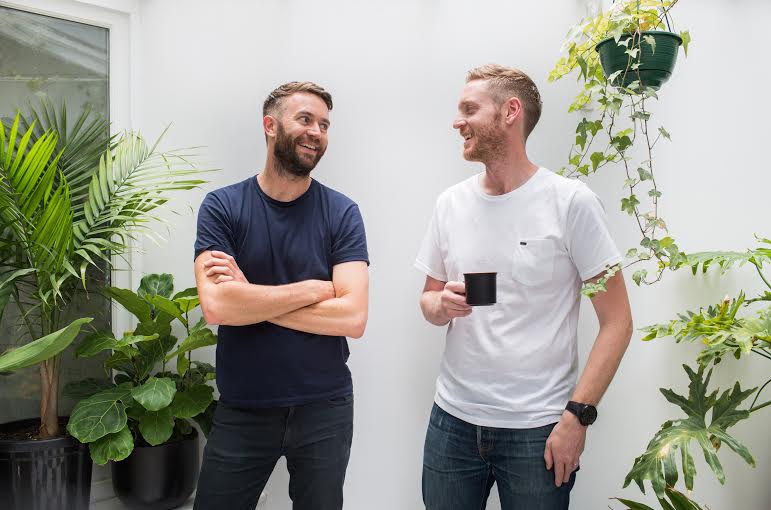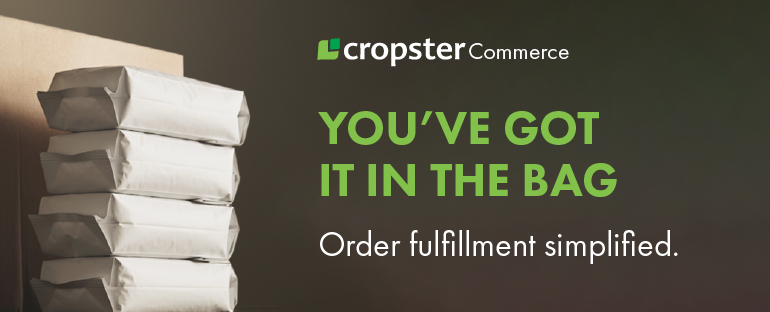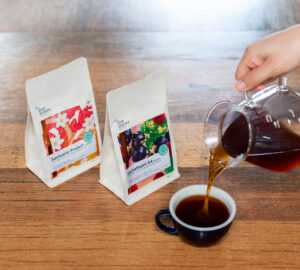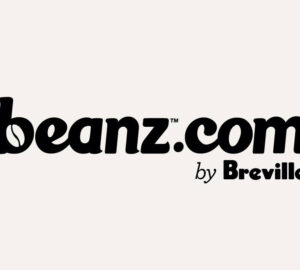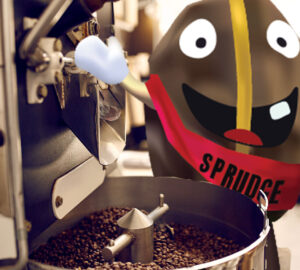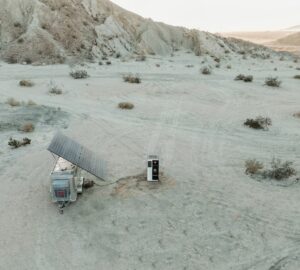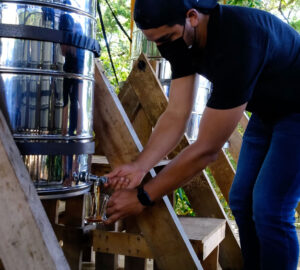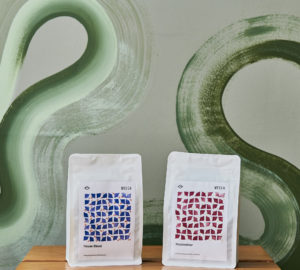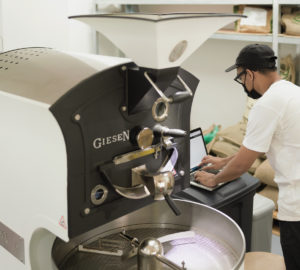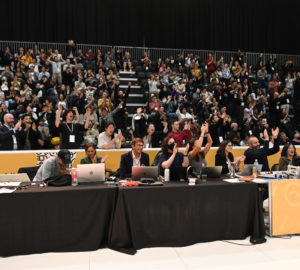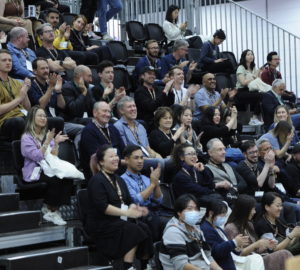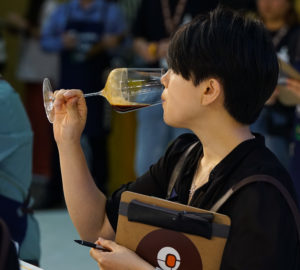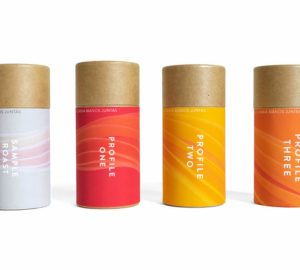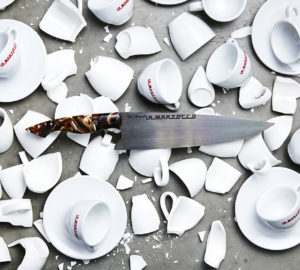Tim Varney and Tim Williams share a deep love of progressive coffee, an encyclopedic knowledge of the beverage’s trends and history, and yes, a first name. Both are originally from Australia, but made a name for themselves with coffee careers in Europe: Varney for his work with Tim Wendelboe Kaffee in Oslo, and Williams with Workshop Coffee in London. They’re back in Melbourne now, collaborating together as the co-founders of the World AeroPress Championship circuit and inaugurating 2016 with the launch of a brand new collaborative roasting project, Bureaux Collective
“A community workspace and incubator serving emerging coffee brands”—as per Bureaux’s masthead— the project draws inspiration by the work being done in Brooklyn at Pulley Collective, a collaborative roasting project that has inspired similar efforts in places like Oakland, California and Portland, Oregon. Bureaux’s founders are looking to build “an inclusive community” of coffee professionals in Melbourne, a city where good-to-great coffee bars seem to grow on trees, but resources, community building, and idea sharing are still somewhat precious commodities.
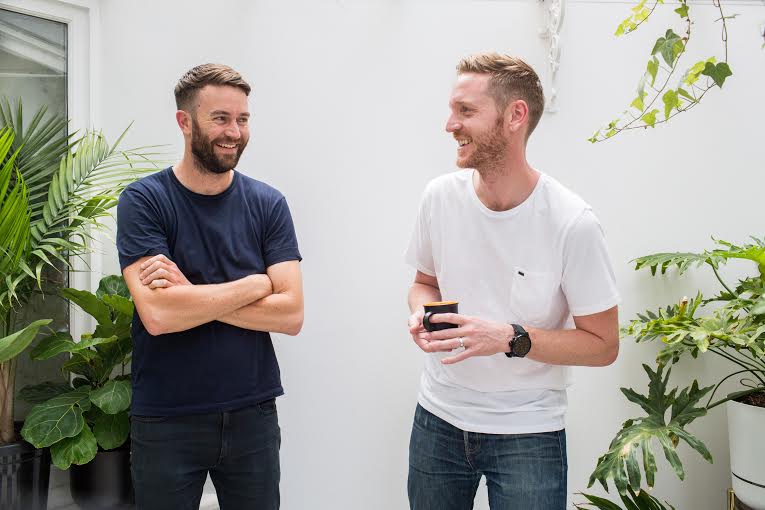
Bureaux Collective are launching in partnership with some of the best multi-roaster cafes in Melbourne, including Patricia Coffee Brewers, Everyday Coffee, and Assembly Coffee & Tea. This would be big enough of a splash, surely, except that Bureaux’s other opening clients are currently the breathless doyen of the Australian food world: Noma, the much-lauded Copenhagen restaurant from owner and founder Rene Redzepi, who in just a week’s time will engage Australia in a riotously anticipated residency in Sydney. Tickets, at $485 a person before wine, sold out in just four minutes. (You should really get the wine.)
Noma’s restaurant coffee program is arguably the best in the world, as we’ve documented previously on Sprudge (both in Copenhagen and at a previous pop-up in Tokyo), led by the engaged palate of noted sommelier and coffee lover Mads Kleppe. In partnership with Bureaux, Kleppe and the Noma team have been able to roast coffees to their demanding specifications, offering for the first time bags of coffee co-branded under the Noma name.
Sprudge co-founder Jordan Michelman sat down digitally with Williams and Varney to talk Noma, Bureaux, and coffee community building in Melbourne.
Hello Tim and Tim. Bureaux Collective sounds absolutely fascinating and I’m excited to talk with you about it. To start, please give our readers an overview of the project in your own words.
Tim Varney: “Essentially we’re setting up Melbourne’s first shared roastery with a collective, community driven approach. A selection of members will primarily come and roast coffee, but will also have access to the added value and benefits that Bureaux will provide via our gathered experience and networks. It’s essentially a starting point for established coffee businesses to take control of their coffee programs through green selection and roasting. We’re hoping to produce a long term solution for a roasting business, and for all of it to be in a community, collaborative atmosphere.
By removing all the smoke and mirrors, we’re hoping to create quite an open platform with lots of information exchange. We’re building a community atmosphere—the kind of place you want to spend time in, rather than, you know, the shed out the back, where most people start roasting.”
How many people will be a part of it?
Tim Williams: “We’ll have space for about 10 members in the first 18 months. We’re keen to ensure each member has room to move and room to grow.”
Can you share with us whom your launching members will be?
TV: “We’re are fair way down the line with Everyday Coffee, Patricia Coffee, and Assembly, and we’re in talks with another handful of people. We’re accessing a gap in market, where the established Melbourne coffee scene will be able to take the next step in producing their own product. Shifting their focus from the buying of roasted coffee to green coffee—and doing it without the expense, hassle and time drain of opening your own roastery.”
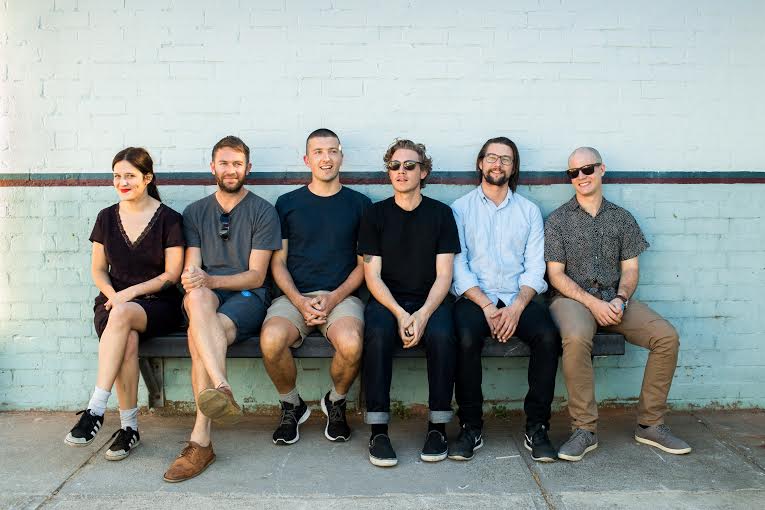
Talk to us about Noma a bit. How did your work with Noma’s Sydney pop-up come to be?
TV: “Mads Kleppe got in touch with me about 8 months ago, informing me about their upcoming work in Sydney, and he felt it was a natural course of action to ask me to do the coffee for the pop-up, which I was pretty chuffed bout. The connection there is with Tim Wendelboe, and my time spent there. The day Rene Redzepi declared that he wanted the best restaurant coffee in the word was the day we approached him, and now years later this is a continuing of that relationship. It’s been a great test of the Bureaux model in many respects. Mads has been heavily involved in selecting the green coffee with us, developing the profile to fit with the Noma experience—much like the approach we’ll have with the other members of Bureaux.”
TW: “Our experience with Noma really ties in with the Bureaux idea, our core concept, and it helped to really prove to us that something like Bureaux is needed. To roast for Noma it took a lot of wrangling and arrangements and calling in favors to get reliable access to the roaster we wanted to use, and to us that was a reiteration of our point. Why open your own roastery for such small volumes? In Noma’s case, it’s a 10 week pop-up. Spending half a million dollars on a fit out to only use for a couple of hundred kilos a week is overzealous. We don’t want to do wholesale coffee and machine support, which is the stuff that usually pays for a fit out.
So we want Noma to be not just an extension of what good restaurant coffee can be, but rather a whole paradigm shift for roasting—to present quality roasting that can be occasional and sporadic and focused and opportunistic, not a 10 year marathon. Something like this is so needed, especially in Melbourne, where every day it’s a cut here or cut there by 5 or 10 cents on wholesale pricing, creating a kind of turf war. Wouldn’t it be awesome to pay X amount of dollars an hour, walk in and walk out, and not have the added headaches of operating a roastery, but still have the ability to take control of your coffee program?”
How many coffees will be offered at Noma?
TV: Two coffees will be roasted by us for Noma—Biftu Gudina and Debello, both from Ethiopia. Mads is a huge fan of the Ethiopian profile, which is why we’ve gone down that road, and thankfully we have two really stellar coffees from SILO. I think we’ve been able to really tailor the roast profile and the coffee to what Mads sees as in line with the Noma experience, and so that’s essentially a tie-in to Bureaux as well. We want to be able to allow our members to be in complete control of driving what kind of coffees they’re serving, and what kind of roast profile they want to achieve.”
You mentioned SILO—whom will you be working with to access green coffee at Bureaux?
TV: “We’ll be working with SILO (which includes Nordic Approach), Melbourne Coffee Merchants and Cafe Imports to offer exclusive coffees and access.”
Where is Bureaux collective located? What equipment will folks have access to in the space?
TV: “It will be in the Richmond suburb of Melbourne, and we’ll be using a Probat P12 roaster. After considering a UG-15 Probat vintage roaster or a Loring, we felt that the P12 was a really great option because we’re well versed in using them, and importantly how good the quality can be. They’re extremely reliable and their window of goodness is very wide. They’re very easy to use and to train someone up on the basics is pretty straightforward.
The process of roasting coffee is pretty monotonous, which I think is a good indicator for consistency. Members of Bureaux will have access to our palates as well as figuring out how to develop and improve roast profiles. Guidance for us is a given is a given, but transferring ownership to our members and what they want from their coffees will be key. We’ll have sample roasting facilities, packing facilities, a beautiful functional lab and a work space that’s welcoming and comfortable. It’s the intangible benefits that will really set us apart—the community atmosphere of the space, the ability to offer evolution and opportunity for a member’s employees, access to our network and the really valuable detail: they’ll be producing their own product.”
How does membership structure work?
TW: “I think most of our members will have a good idea how much roasted coffee per week they’ll be producing, which translates pretty succinctly into the amount of hours per week they need access to the roaster—and that’s the main variable we lock down. So if for an example, if you use the roaster 6 hours a week, you’ll have access to QC for 4-5 hours, as well as desk space, some storage, time with Tim and I, and all that’s bundled into a weekly price. We’ll ideally be selling packages in 12 week blocks, with discounts for extended member contracts. We’re wanting to sell flexibility and convenience, as opposed to one big long term contract. The prosperity of our customers will be our main measure of success.”
How will you vet potential members? What barriers do you see to entry?
TW: “If someone just wants to roast 10 kilograms of coffee, then we can work with those people to get them to that point. But I think for the vast majority of our members what they’ll be looking to do is to balance the two sides of the equation—producing coffee in the way they want it to be, and having a degree of ownership over their roasted coffee, and then to see a cash benefit, month on month, a savings against what they’re paying to a traditional wholesale roaster. By getting enough people together and working collaboratively we’re going to be able shift how people approach their coffee programs. So in that regard it’s a bit self-filtering—it’s the kind of person who already buys coffee who will have a good feel for what we do, and they’ll be the ones who’ll be able to take advantage of the platform we’re offering.
The other really important side is the community element. This is an inclusive community that we’re curating, and we want to focus on having communal QC sessions every week, and a degree of sharing for those who want to be involved in that. We’ll host talks from people within our cousin industries, like wine and food. So to some extent we need to make sure that the people who we accept into that community will contribute to the attitude of what we’re doing. It’s not just a production space—we could have done that and just churned out coffee for a lot cheaper. But we hope it’ll be really innovative and attractive in bringing people together with a platform to produce amazing coffee, and our responsibility will be for curating and presenting that.”
Jordan Michelman is a co-founder and editor at Sprudge.com. Read more Jordan Michelman on Sprudge.
Photos courtesy Bureaux Collective.











